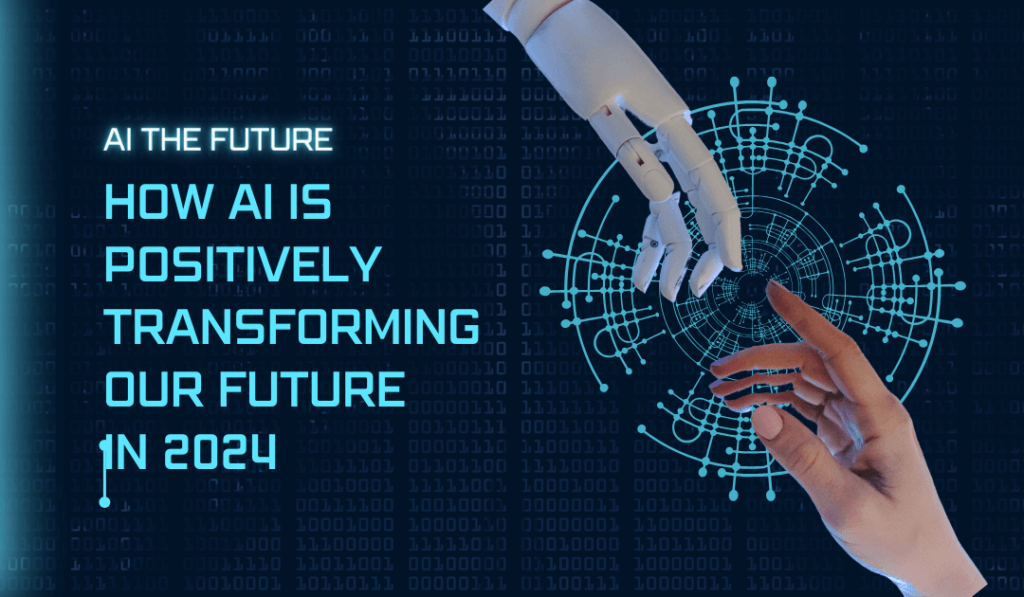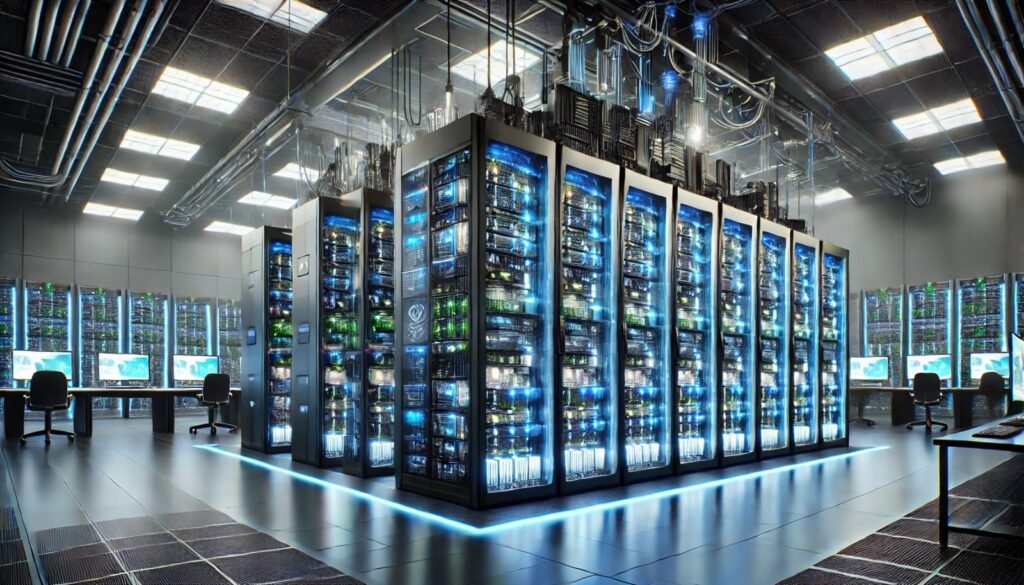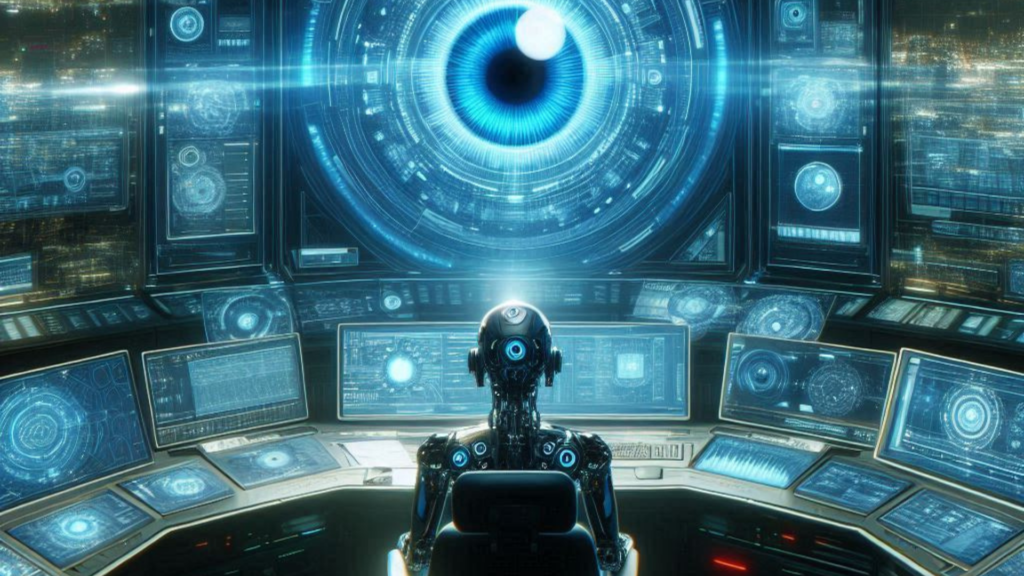Did you know how AI is positively transforming our future in 2024 – 2025 and AI is expected to boost the global economy by $15.7 trillion by 2030 ? That’s just a glimpse of the potential impact of AI, a technology that is rapidly transforming our world.
Imagine a world where your daily tasks are simplified, your health is monitored in real-time, and your workday is optimized for maximum creativity—all thanks to Artificial Intelligence. Far from the dystopian fears of robots taking over, AI is proving to be humanity’s most powerful ally in building a brighter, smarter, and more efficient future. In 2025, we’re not just witnessing the evolution of AI; we’re living it—transforming industries, empowering individuals, and reshaping how we connect with the world. Let’s explore how AI is positively transforming our lives and setting the stage for an incredible future.
Take the story of Deep Blue, a computer chess program that defeated world champion Garry Kasparov in 1997. This event was a watershed moment for AI. It showed that AI systems were capable of surpassing human performance in complex tasks.
What do you think are the biggest challenges facing AI development today? How do you think AI will change the world in the next 10 years?

Artificial intelligence (AI) is one of the most transformative technologies of our time. It already has a major impact on many industries and aspects of our lives. Its influence is only going to grow in the years to come.
AI is a broad term that encompasses a wide range of technologies, from machine learning and deep learning to natural language processing and computer vision. AI systems can learn from data and improve their performance over time without being explicitly programmed. This makes them well-suited for a wide range of tasks, from automating repetitive tasks to making complex decisions.
History of Artificial Intelligence
- Early Days of Computing: The concept of AI can be traced back to the early days of computing.
- Alan Turing and the Turing Test: Alan Turing, considered the father of AI, proposed the Turing test in the 1950s to assess a machine’s intelligence.
- Emergence of Expert Systems: In the 1970s, expert systems focused on developing AI to solve specific problems within a specialized domain.
- Machine Learning Revolution: The 1990s witnessed a surge in machine learning research, leading to algorithms that could learn from data and improve over time.
- Resurgence of AI: Recent years have seen a renewed interest in AI, power by advancements in machine learning and deep learning.
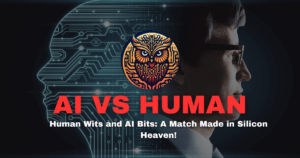
Differences between human intelligence and Artificial Intelligence:
Human intelligence and artificial intelligence (AI) are two different types of intelligence. Human intelligence is the natural ability to learn, understand, and apply knowledge. AI is the ability of machines to simulate human intelligence.
| Characteristic | Human intelligence | Artificial intelligence |
| Biological basis | Neural networks in the brain | Computer algorithms |
| Learning process | Learning from experience, observation, and interaction with the environment | Learning from data |
| Reasoning Ability | Can reason and make decisions in complex and uncertain environments | Can reason and make decisions in narrow and well-defined environments |
| Creativity and innovation | Can generate new ideas and solve problems creatively | Can generate new ideas and solve problems, but may be less creative and innovative than humans |
| Self-awareness | Is aware of itself and its surroundings | Is not aware of itself or its surroundings |
Building Blocks of Artificial Intelligence

Artificial Intelligence (AI) is a field that makes machines do things that humans typically do, like learning, reasoning, and problem-solving. It uses techniques like:
- Machine learning: Computers learn from data without being told.
- Natural language processing (NLP): Computers understand and generate human language.
- Computer vision: Computers see and understand images.
- Robotics: Robots sense and act to achieve goals.
- Expert systems: Computer programs mimic human experts.
- Fuzzy logic: Computers deal with uncertain information.
Artificial intelligence’s key parts are:
- Data: AI systems are trained on data.
- Algorithms: AI algorithms tell the system how to process data.
- Hardware: AI systems need powerful hardware to run.
- Software: AI software develops and deploys AI systems.
- Human expertise: Humans develop and use AI.
Combining these parts, AI systems solve problems, make decisions, and automate tasks.
What are the potential challenges facing AI development?
Some of the potential challenges facing AI development include:
- Ensuring that AI systems are fair, unbiased, and ethical
- Addressing job displacement and retraining concerns
- Protecting privacy and security
- Ensuring that AI systems are explainable and transparent
Artificial intelligence Positively Transformation Our Future
- Enhanced Efficiency and Automation
- Data-power Insights and Predictive Analytics
- Personalized Recommendations and Experiences
- Improved Customer Service
- Risk Mitigation and Safety
- Medical Diagnosis and Treatment Advancements
- Scientific Research and Discovery
- Enhanced Security and Fraud Detection
- Creative Content Generation
- Accessibility and Inclusiveness
Impact of Artificial Intelligence on Different Sectors
Healthcare:
AI will transform healthcare with personalized care, improved diagnostics, and drug discover
Transportation:
AI will power self-driving cars, optimize traffic flow, and transform public transportation.
Education:
AI will personalize learning experiences, provide real-time feedback, and automate grading tasks.
Customer Service
: AI-powered chatbots will offer 24/7 support and efficient issue resolution.
Finance:
AI will detect fraud, manage investments, and provide personalized financial advice.
These are just a few examples of AI’s transformative impact. AI holds ability to make our lives easier, safer, and more productive. However, responsible usage and addressing ethical concerns are important for a positive AI-powered future.
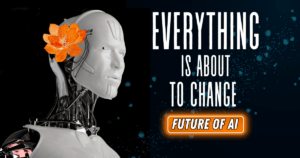
Future of Artificial Intelligence:
Artificial intelligence (AI) is poised to transform our lives in numerous ways, becoming more pervasive and impactful in the years to come.
Key trends shaping AI’s future:
- Ubiquitous AI: AI will seamlessly integrate into devices and products, becoming an essential part of our daily lives.
- Sophisticated AI: AI algorithms will advance in accuracy and efficiency, tackling complex problems.
- Human-like AI: AI systems will better understand and interact with humans, enhancing usability and collaboration.
- Ethical Concerns: AI’s growing power raises ethical concerns like job displacement, bias, and misuse, requiring responsible use and safeguards.
Conclusion
Artificial intelligence (AI) is a game-changing technology that has the potential to transform various areas of our lives. AI has already made significant advancements in many industries and applications, and its influence is expected to expand in the coming years.
Frequently Asked Questions:
What is artificial intelligence (AI)?
Artificial intelligence (AI) is a broad field of computer science that seeks to create intelligent machines that can think and act like humans. AI research has been highly successful in developing effective techniques for solving a wide range of problems, from game playing to medical diagnosis.
How is AI being used today?
AI is already being used in a wide variety of applications, including:
- Self-driving cars
- Facial recognition
- Virtual assistants
- Machine translation
- Spam filtering
- Fraud detection
What are the benefits of AI?
AI has the potential to bring many benefits to society, including:
- Increased productivity
- Improved decision-making
- New products and services
- Reduced costs
- Improved safety
What are the challenges of AI?
There are also some challenges associated with AI, including:
- Job displacement
- Bias
- Misuse
- Ethical concerns
What is the future of AI?
The future of AI is very bright. AI is expected to continue to grow and develop at a rapid pace, and it is likely to have an even greater impact on our lives in the years to come.

